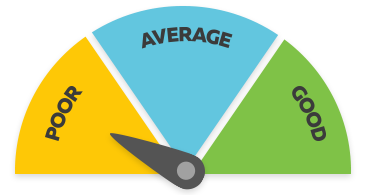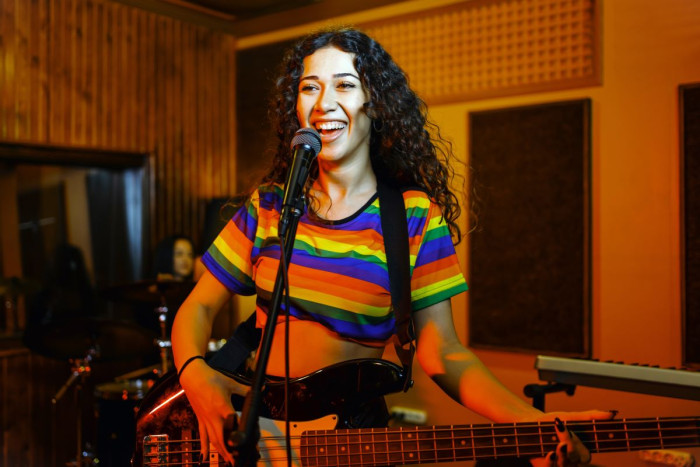Musician
Kaiwhakatangitangi
Alternative titles for this job
Musicians write, arrange, conduct, and perform musical compositions.
Pay
Pay rates for musicians depends on their ability, how often they work, and they type of music they play.
Source: The Big Idea, 2023
Job opportunities
Pay
There are no set pay rates for musicians, and what you earn depends on your ability, as well as how often you work and what type of music work you do.
Musicians often need to combine their work with other forms of employment, as work as a musician tends to be irregular.
- Musicians usually earn the minimum wage or a little more when working as a musican.
Source: The Big Idea,' Lowdown: Creatives Income Research Paints "Grim" Picture', 25 May 2023.
(This information is a guide only. Find out more about the sources of our pay information)
What you will do
Musicians may do some or all of the following:
- play a musical instrument or sing to a high standard
- study and interpret music
- accompany singers and other soloists
- compose or conduct songs or instrumental music
- promote and market themselves or their band
- perform in public places such as bars, concert halls and clubs
- audition for parts in musical productions
- make or take part in recordings
- teach music
- research, learn and rehearse music.
Skills and knowledge
Musicians need to have knowledge of:
- how to play musical instruments
- acoustics and tuning
- how to compose and arrange music
- recording methods and equipment
- vocal and performance techniques, and correct breathing methods
- basic music theory
- business and marketing principles
- the New Zealand music industry.
Working conditions
Musicians may work:
- long and irregular hours, including evenings and weekends
- indoors or outdoors in places such as theatres, clubs and concert halls
- in conditions that are noisy, dark and hot
- locally, around New Zealand, and overseas.
What's the job really like?

Ciaran McMeeken
Singer/songwriter
As a singer/songwriter, Ciaran McMeeken has toured the country, released a debut album, and had his music streamed over 1.8 million times on Spotify, but it didn’t all happen overnight.
A slow and steady process
“I’ve been playing music for 13 years, but I’ve been really pursuing it for the last five. It’s been a really slow and steady process of writing songs, recording them, playing shows, and I guess just honing my craft and getting better and better at performing and writing songs. I feel like I’m just getting started.”
Not always a full-time gig
“I started off working full time, then got to a point where I was working about 20 hours a week and pouring the rest of my time into making music. It’s been a process over the last three or four years of cutting down that part-time work.”
Commitment is key
“Early on, I really doubted myself but I just had this tiny inkling that I was meant to be doing this. I decided to commit one hundred percent and do whatever it took to make it work,” says Ciaran.
“I’d love to be touring around the world and selling out arenas and I’m committed to making that happen.”
Musician video
Troy Kingi talks about life as a musician – 2.11 mins.
you go beyond just playing the song into the next part where you start putting
soul and your spirit into the song. So that's what I live for.
Tēnā koutou. My name is Troy and I am a musician.
First and foremost as a musician, my job is creating,
that's the most important part.
Then there's the shows where you have to rehearse, do shows.
Then there's the other aspect of it, the business side, doing videos,
doing merch, taking business meetings. So it's quite broad.
Every week I feel like I'm doing something completely different.
If I could get paid just for coming into the rehearsal room and jamming with my
fam, I'd be a happy, happy man.
I'm the face of Troy Kingi, but it's a whole team behind me. My band -
a lot of them I've been working with for at least 6 years.
I really knew I wanted to do it when I sat in on my friends' rehearsals,
you could just feel the energy in the room.
It's the energy that you can only get from a group of people connecting,
and when I'm writing,
I'm trying to think of how can I get that feeling. As far as music goes,
I've done a diploma in nothing,
but I did do a diploma in professional scuba instruction .
You don't need to study to be a musician,
but in order to be a great musician,
it would help learning the theory side. Get used to being poor.
But love it. In being poor,
we are gonna see the most beautifulest art ever created.
Only real way to make money off it is to tour it.
So you really gotta be passionate about it.
You just need the passion. My favourite part about being a musician is
the live raw energy of 3 people or a band playing together.
I realise that's what I've been searching for my whole life. The connections.
Entry requirements
There are no specific requirements to become a musician. However, a tertiary music qualification may be useful, for example:
- a jazz performance degree is useful for becoming a jazz musician
- a degree, such as a Bachelor of Music, may be useful for becoming a classical or contemporary musician.
Musicians also gain skills on the job through practice, training, rehearsals and performances.
Secondary education
There are no specific secondary education requirements to become a musician. However, English, music and languages are useful.
Personal requirements
Musicians need to be:
- punctual and reliable
- able to work well under pressure and accept criticism
- able to work well in a team if rehearsing and performing with a group
- dedicated to practising
- able to keep time
- confident about performing in front of large groups
- persistent and determined
- good at working with people and building relationships
- willing to promote themselves to people such as club owners and agents.
Useful experience
Useful experience for musicians includes:
- playing and composing music
- performing to an audience
- participating in music competitions
- reading and interpreting musical scores
- private or community courses in music
- teaching music
- marketing or promotion work.
What are the chances of getting a job?
Few opportunities for musicians
It is difficult to get paid, full-time work as a musician in New Zealand because the music industry is small.
Many musicians work in other jobs to supplement their income.
According to the Census, 1,398 musicians worked in New Zealand in 2018.
Self-employment common among musicians
Most musicians are self-employed, although they may have an agent. Musicians may be hired by companies or individuals to play at events such as concerts, festivals, parties or weddings.
Classical musicians, composers and conductors can work for orchestras, choirs or bands including:
- New Zealand Symphony Orchestra
- New Zealand Opera Chorus
- Auckland Philharmonia Orchestra
- Orchestra Wellington
- Christchurch Symphony Orchestra
- New Zealand Army Band.
Other musicians may be hired to record or direct advertising jingles or incidental music for film, television and radio.
Sources
- Mauafua, A, musician, Big Foot Music Education, careers.govt.nz interview, February 2018.
- McMeeken, C, musician, careers.govt.nz interview, February 2018.
- PwC New Zealand, 'Economic Contribution of the New Zealand Music Industry 2015', October 2016.
- Stats NZ, '2018 Census Data', 2019.
- Victoria University Careers and Employment, 'Career View – Music', accessed February 2018, (www.victoria.ac.nz).
- Walker, S, executive support, New Zealand Music Commission, careers.govt.nz interview, February 2018.
(This information is a guide only. Find out more about the sources of our job opportunities information)
Progression and specialisations
Musicians may move into music therapy, education, publishing, promotion, and production roles.
Musicians can specialise in a number of roles, including:
- Composer
- Composers create new music or rewrite existing music for bands, orchestras, singers, plays or films.
- Conductor/Music Director
- Conductors and Music Directors direct the performance of musicians in an orchestra, vocal/choral ensemble, band or musical performance.
- Instrumental Musician
- Instrumental musicians play one or more musical instruments as part of a musical composition.
- Singer
- Singers perform as soloists or as part of a group to entertain an audience.
- Songwriter
- Songwriters write music and lyrics for songs, either for themselves or others.
Last updated 11 December 2023

